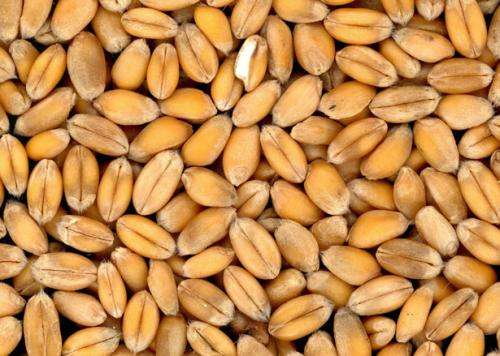The starch risk to teeth

An examination of research on oral health, commissioned by the World Health Organisation, has indicated that for oral health we should stick to whole grain carbohydrates and avoid processed ones, especially if sweet.
Food contains different types of starchy carbohydrate with varying degrees of processing. Although the researchers found no association between the total amount of starch eaten and tooth decay, they did find that more processed forms of starch increased risk of cavities. This is because they can be broken down into sugars in the mouth, by amylase found in saliva.
Further findings, although based on very few available studies and weaker data, suggested a lower risk of oral cancer from consuming whole grain starches, and that whole grains may also offer protection against gum disease.
The findings come from a review of the 33 academic papers on starch and oral health and is published today in the Journal of Dental Research.
Paula Moynihan, Professor of Nutrition and Oral Health at Newcastle University, UK, who lead the research said: "The evidence suggests that a diet rich in whole grain carbohydrates is less likely to damage your oral health than one containing processed starches."
In the review, 33 papers were included of studies on foods containing what were characterized as rapidly digestible starches (e.g. white bread, crackers, biscuits, cakes, pretzels) and slowly digestible starches (e.g. wholegrains, legumes), and their relationships with dental caries, oral cancer and gum (periodontal) disease.
Updating WHO guidance on carbohydrate intake
The World Health Organisation (WHO) is currently updating its guidance on carbohydrate intake, including assessment of dietary fibre and starch quality.
WHO currently recommends reducing free sugar intake to less than 10 % of total energy (calorie) intake, and suggests further reduction to less than 5% for additional health benefits.
Free sugars are sugars that are added to foods by the manufacturer, cook, or consumer, plus those naturally present in honey, syrups, fruit juices and fruit juice concentrates.
Professor Moynihan added: "Despite an ill-advised fashion for eliminating carbohydrates from the diet, a carbohydrate-rich diet is shown to be fine for oral health so long as it is low in sugars and is based on whole grain varieties of carbs such as pasta, couscous and wholemeal bread. They key for shoppers is to look for wholemeal and wholegrain on the labels."
Additional research commissioned by the WHO into the effects of carbohydrate quality on other health outcomes, including cardiovascular diseases, cancer and type 2 diabetes, will be used to inform the forthcoming guideline.
More information: K. Halvorsrud et al, Effects of Starch on Oral Health: Systematic Review to Inform WHO Guideline, Journal of Dental Research (2018). DOI: 10.1177/0022034518788283


















